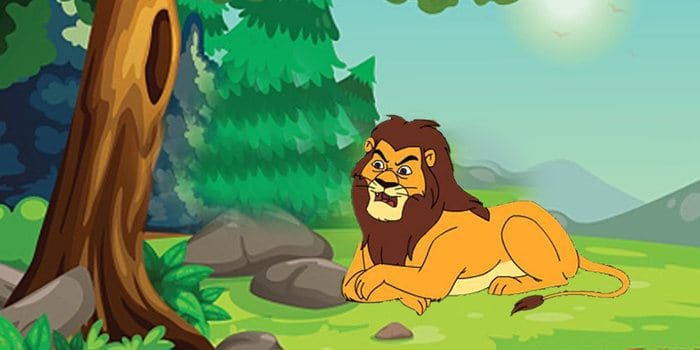As a child and in the early years of growing up, parents often tend to narrate a lot of stories to their children, mostly “stories with a moral” with a viewpoint to fill the buckets of their bodies with a lot of positive and moral vibes. Children being innocent often fail to understand what a specific story is trying to convey, but as they grow, glances from the past childhood memories often leave an impression of the utmost morality in an individual’s life. Now I guess the moral stories in some sort define their actual meaning.
There is a lot to moral stories than just flipping through its characters and their traits and around a plot. Much more than imagining the character in our heads and wishing to live the life they live and thus gain as much as we can from that story. When we hear about moral stories, the very first thing that pops up in our mind is ‘THE TITLE,” which is a story in itself even before the story unfolds. Now, as the story proceeds, so does our interest in the story, and we start absorbing every line on every page of the book. Whether it is our grandparents reciting these stories or our parents tapping our heads to these stories, or simply it is our mobile phones with an audio assistant reciting the story, the morality in the moral stories is the only thing we try to fetch.

Table of Contents
WHY WE ENJOY MORAL STORIES?
When we hear the word “moral stories,” we often tend to go through one of the most popular Panchatantra stories – “The monkey and the crocodile.” For a reference, let’s walk back through the memory lane of this story wherein a crocodile makes friend with a monkey. They both seem to have a good time together and also shared stuff. The crocodile’s wife, on the other hand, wasn’t very happy with the fact of a monkey being his husband’s friend, so she made up a plan of inviting him to dinner and eventually killing him. The crocodile being innocent, fell in the wife’s trap of tricking the monkey to give her his heart. As the crocodile was bringing the excited monkey to his house for dinner, he confessed to the monkey about killing him. The monkey proved himself to be wise and made up an excuse to take him back to the tree, and eventually, he was saved and never talked to the monkey again.
The moral this story passes is, “A wise enemy is better than a foolish friend.” We all were so fascinated by this story creating different ideas about the theme and plot in our heads. Also, the way the story maintained our interest until the very end is one of the ways of proving the importance of moral stories. They tend to maintain the interest of the readers and ultimately pass on the most important aspect, i.e. “THE MORAL.”

IMPORTANCE OF MORAL STORIES
As stated earlier, how moral stories are a remark to an individual’s personality in the growing ages; there are other aspects as to how humans hearing to these stories tend to develop a habit of these stories. Stories not only help humans in maintaining an interest but also helps to engage with the overall environment the story creates. In just a matter of some time, these stories prove to be amazingly interesting and useful for whosever listens. No wonder these stories are published and sold in huge numbers and read and made an impact on a larger portion of society. Let’s focus on the relevance these stories tend to pass: –
- Creates an engaging environment– Stories have proved to be creating an engaging environment for its listeners as these stories are delivered in all amounts of words, languages, emotions, and feelings. One has easy access to the type of stories they hear and easily absorb the environment around them. This helps to build emotional conduct with the plot of the story as well.
- Helps shape perspective– Everyone has a different story to tell, whether it is printed in a book or it is one of our own experience; when we hear these stories, we eventually try to connect to the storyline and present our perspective for the story. Now, this seems a little tough task for the small children hearing these stories, but then these children also, in their world of imagination, build their perspective through which they grow up to.
- Helps us grow mentally– Listening to more and more of these stories helps bring a change in the way our mind thinks and grows. Gradually over time, we start looking at the brighter and more wise side of the world, and thus, our thought process also goes under a significant positive change.
INSPIRATIONS FROM “STORIES WITH A MORAL”
We are well aware of the fact of how books can change our lives. Whether it is an academic book or novels, whether self-help books or storybooks, each book has the power and magic to bring about changes in us. Similarly, when we are in the habit of listening/reading stories, the magic of the words plays its wand, and we enter into a world of utmost creativity, wisdom, and skills. These wisdom and skills are far enough to make a happy and healthy version of ourselves.
Every story has a different yet unique kind of inspiration one can draw. Whether it is the character traits or the theme, the story revolves around. There is a lot that we can take from the stories with a moral.
Initially, it might not happen, but with time passing, these stories become one of the greatest sources of motivation, and who doesn’t want to stay motivated, right?
CONCLUSION –
It is very accurate to say that with the right kind of knowledge, humans flourish beautifully in their lives. Whatever field one may be pursuing, an accurate amount of wisdom mixed with a little perspective is sure to land us in success. There can be a lot of ways to achieve this, while the easiest and economically efficient is “listening/reading to stories”. No matter if you are a kid of 5 or an adult of 45, read as much as stories with a moral you can because the feeling of completing a story with a beautiful message is worthy enough of all the time spent on that story.












